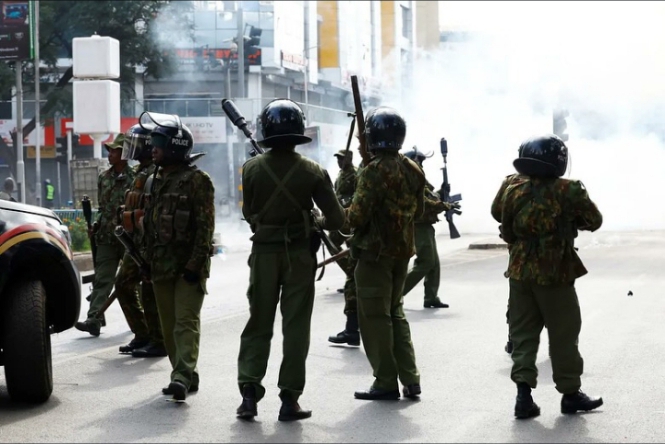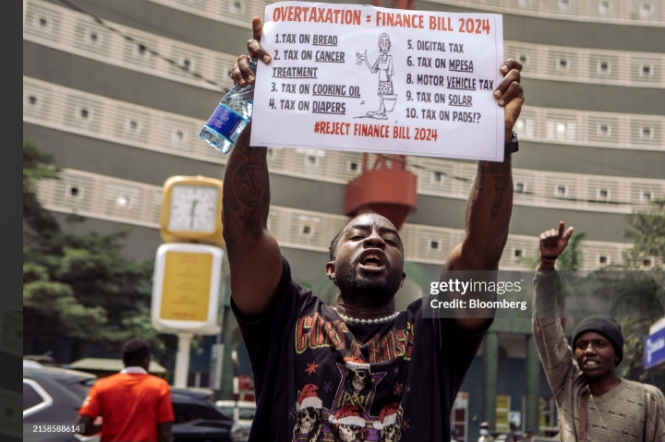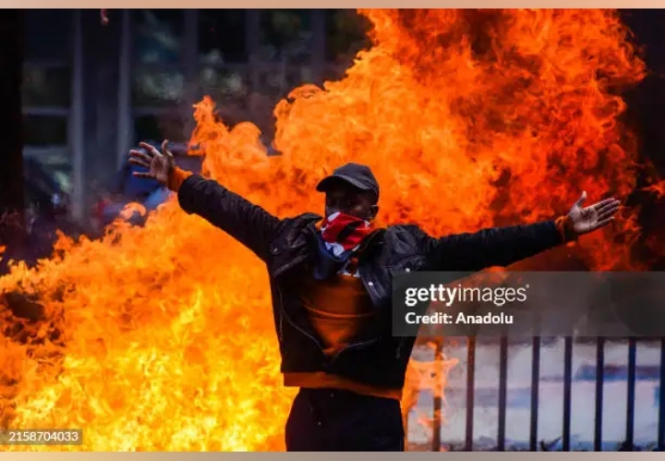At least sixteen people have been killed and dozens injured in Kenya after widespread protests erupted across the country on Tuesday, June 25, marking one year since the 2024 anti-tax demonstrations. The unrest, which has gripped Nairobi, Mombasa, Kisumu, and several other towns, is fueled by growing frustration with government policies, police actions, and economic hardship.
The protests began on June 25 in a coordinated movement led largely by Kenya’s youth. Many blame the government for rising living costs and unfulfilled promises of reform. Tensions escalated significantly with the revelation that blogger Albert Ojwang died in police custody, an incident that triggered national outrage and intensified calls for justice. As a 22-year-old protester, Kevin Otieno, in Nairobi, stated, “Albert’s death is the final straw. We’re tired of being silenced, beaten, and ignored.”
Police responded to the demonstrations with force, deploying tear gas, water cannons, and in some areas, live bullets. According to Human Rights Watch and Amnesty International Kenya, at least 16 people have been killed, with most fatalities reportedly due to police gunfire. Hospitals in Nairobi confirmed treating over 100 injuries, many of which included gunshot wounds.
The Kenya National Commission on Human Rights (KNCHR) reported eight fatalities, primarily from gunshot wounds across six different counties, while also noting over 400 casualties, including demonstrators, police officers, and journalists.

The Kenyan government has faced criticism for its handling of the protests. In a controversial move, the Communications Authority of Kenya initially ordered major broadcasters, including NTV, KTN, and K24, to halt live coverage of the demonstrations.
This directive, which raised concerns about press freedom and transparency, was swiftly challenged. A High Court in Nairobi later issued a conservatory order suspending the ban, directing the immediate restoration of any switched-off broadcasting signals, as reported by AllAfrica.com.
Meanwhile, security forces barricaded key government installations such as Parliament and State House in Nairobi in anticipation of further unrest.
Despite the crackdown, protesters returned to the streets on Wednesday, June 26, to engage in cleanup efforts. Business owners in the capital are assessing substantial losses, with some reporting damages exceeding $15,000 due to looting and fires. Grace Wambui, a trader in downtown Nairobi, expressed her despair, stating, “This was our only shop. We lost everything.”

In Parliament, lawmakers have passed the 2025 Finance Bill. While some controversial clauses, such as unrestricted access for the Kenya Revenue Authority (KRA) to personal data, were reportedly removed following public outcry (Channels Television), critics argue that the bill does little to address the fundamental issues of joblessness, inflation, and inequality.
The government has not issued a formal statement specifically on the protest deaths, but it has pledged to investigate Ojwang’s case. Six individuals, including three police officers, have reportedly been charged with his murder, though they have pleaded not guilty.
International bodies, including the UN Human Rights Office (OHCHR), have expressed deep concern over the reported deaths and injuries, calling for prompt, thorough, and independent investigations into the incidents.





